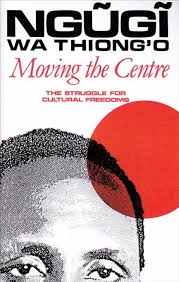The Life and Works of Ngugi wa Thiong’o

Introduction
Ngugi wa Thiong’o is a prominent Kenyan writer and academic whose contributions to literature have resonated globally. Known for his advocacy for African languages and social justice, Ngugi’s works delve deep into the complexities of colonialism, cultural identity, and the struggle for freedom. His importance in today’s literary landscape cannot be understated, particularly as debates around language and post-colonial identities continue to evolve.
Early Life and Education
Ngugi wa Thiong’o was born in Kamiriithu, Kenya, in 1938 into a Kikuyu family. His early experiences with colonialism and the subsequent impact on his community significantly shaped his literary voice. He attended Makerere University in Uganda, where he began to explore his passion for writing and storytelling, eventually publishing his first novel, Weep Not, Child, in 1964.
Major Works and Themes
Throughout his career, Ngugi has produced numerous influential works, including The Devil on the Cross, Petals of Blood, and Decolonising the Mind. His writings often critique colonial and post-colonial societies while advocating for the use of African languages in literature. In his pivotal book, Decolonising the Mind, Ngugi argues that language is a key part of cultural identity and that African writers should return to their native tongues to reclaim their heritage.
Recent Developments
In recent years, Ngugi has continued to be an active voice in literature and socio-political discourse. He was awarded the prestigious 2021 Man Booker International Prize for lifetime achievement and was also named an honorary member of the American Academy of Arts and Letters. In 2023, he published a new novel titled The Perfect Nine, which diverges into the realm of myth and celebrates Kenyan folklore, blending the old with contemporary issues.
Conclusion
Ngugi wa Thiong’o remains a crucial figure in the landscape of world literature, standing as an advocate for the preservation of African languages and literature. His works inspire new generations of writers to delve into their cultural identities while challenging the narratives imposed by colonial powers. As global conversations about language, identity, and social justice continue, Ngugi’s contributions serve as a vital reminder of the strength found in cultural heritage and storytelling.








